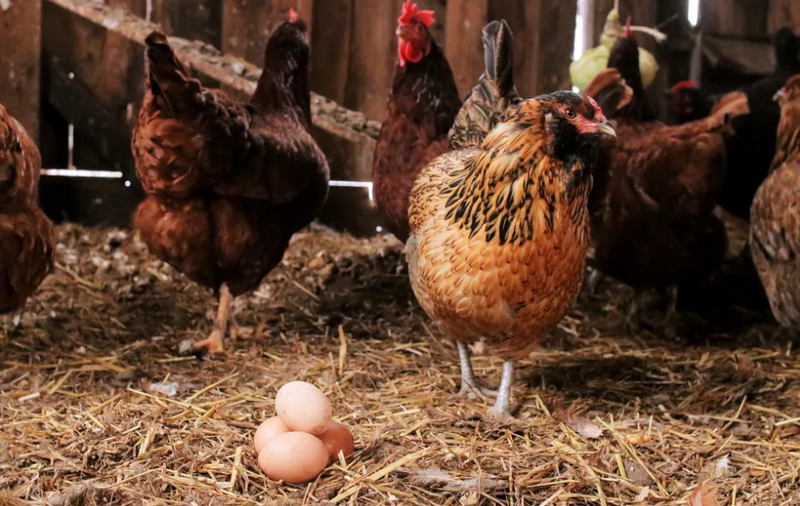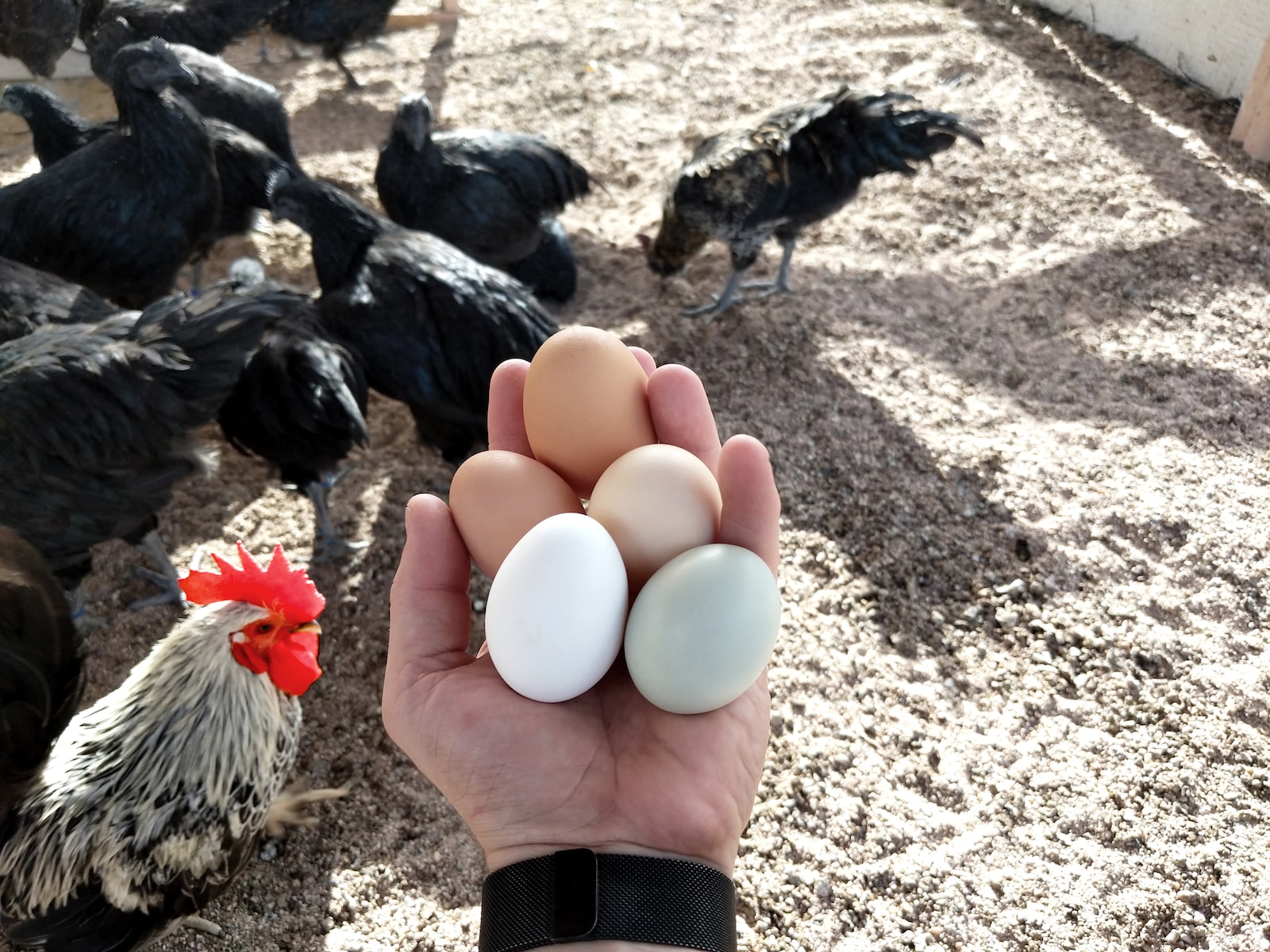Have you ever wondered if hens can lay eggs without a rooster? If you're a poultry enthusiast or planning to start your own backyard flock, this is likely a question that has piqued your curiosity. This guide delves into the fascinating world of chicken biology, exploring the natural reproductive cycle of hens and their egg-laying process. Whether you're raising hens for eggs or simply interested in their biology, this article will provide you with a thorough understanding of how hens produce eggs without the presence of a rooster.
Egg production is one of the most intriguing aspects of poultry farming. A common misconception is that a rooster is essential for hens to lay eggs. However, the truth is more complex and fascinating. In this article, we will uncover the science behind egg-laying, the role of roosters, and everything in between. By the end, you'll have a clear understanding of how hens produce eggs without a rooster and the implications of this knowledge for your flock.
This guide is tailored to be both informative and practical, catering to seasoned farmers and beginners alike. By the conclusion, you'll have a comprehensive grasp of how hens produce eggs without a rooster and how this knowledge can benefit your poultry operation.
Read also:Unpacking The Lara Rose Leak Privacy Consent And Digital Responsibility
Table of Contents
- Understanding the Biology of Egg-Laying in Hens
- The Role of a Rooster in Egg Production
- Types of Eggs Laid by Hens
- Factors That Influence Egg-Laying Without a Rooster
- Nutrition and Health for Maximum Egg Production
- Debunking Common Myths About Egg-Laying Without a Rooster
- Advantages of Raising Hens Without a Rooster
- Challenges in Managing Flocks Without a Rooster
- Practical Tips for Successful Egg Production Without a Rooster
- Conclusion: Mastering the Dynamics of Hen Egg-Laying
Understanding the Biology of Egg-Laying in Hens
Hens are biologically programmed to lay eggs as part of their reproductive cycle. To truly answer the question, "Can hens lay eggs without a rooster?" it's essential to delve into the biology of this natural process.
How Does the Egg-Laying Process Work?
The egg-laying process begins in the hen's ovary, where the ova, or egg yolks, are formed. These yolks are then released into the oviduct, where they are encased in albumen (egg white), wrapped in protective membranes, and finally covered by a hard shell. This intricate process takes approximately 24 to 26 hours from start to finish, showcasing the efficiency of nature's design.
Do All Hens Lay Eggs Equally?
Not all hens are equally proficient in egg-laying. Various factors, including breed, age, diet, and environmental conditions, can significantly impact how many eggs a hen produces. For instance, certain breeds, such as the White Leghorn, are celebrated for their exceptional egg-laying capabilities, while others may lay fewer eggs but offer other advantages, such as superior meat quality.
The Role of a Rooster in Egg Production
Contrary to popular belief, a rooster is not necessary for hens to lay eggs. The role of a rooster is primarily to fertilize eggs, not to initiate the egg-laying process itself.
Can Hens Lay Eggs Without a Rooster?
Yes, hens can and do lay eggs without the presence of a rooster. The only difference the rooster makes is in fertilizing the eggs. Unfertilized eggs are perfectly safe to consume and are the type most commonly found in grocery stores.
Types of Eggs Laid by Hens
When it comes to egg production, hens can lay two primary types of eggs:
Read also:The Untold Story Of Crystal Lust A Life Of Passion Impact And Legacy
- Fertilized Eggs: These eggs result from the mating of a hen and a rooster, leading to embryos that can develop into chicks under the right conditions.
- Unfertilized Eggs: These eggs are laid by hens without the involvement of a rooster. They are entirely safe to eat and are the most common type of eggs consumed by people.
Factors That Influence Egg-Laying Without a Rooster
Several key factors can impact the egg-laying capabilities of hens, even in the absence of a rooster. Let's explore these factors in greater detail:
Age of the Hen
Young hens, also known as pullets, typically begin laying eggs around 18 to 24 weeks of age. As they grow older, their egg production may decrease, but with proper care, many hens continue to lay eggs well into their later years.
Lighting Conditions
Adequate daylight is crucial for maintaining consistent egg production in hens. During the winter months, when daylight hours diminish, egg-laying may slow down. To counteract this, providing supplemental lighting in the coop can help maintain production levels.
Breed Selection
Some chicken breeds are more adept at egg production than others. Breeds like the Rhode Island Red and Plymouth Rock are renowned for their reliability in laying eggs, even without a rooster.
Nutrition and Health for Maximum Egg Production
Ensuring proper nutrition and healthcare is essential for hens to produce eggs efficiently, regardless of whether a rooster is present.
Essential Nutrients for Egg-Laying
Hens require a well-balanced diet rich in protein, calcium, and essential vitamins and minerals. Calcium, in particular, plays a vital role in forming strong eggshells, making it a crucial component of their diet.
Signs of Nutritional Deficiency
Be vigilant for signs such as thin eggshells, reduced egg size, or a decline in production, which may signal a nutritional deficiency. Adjusting their diet can often address these issues and restore optimal egg production.
Debunking Common Myths About Egg-Laying Without a Rooster
There are several myths surrounding the egg-laying capabilities of hens without a rooster. Let's debunk some of the most prevalent ones:
- Myth 1: Hens cannot lay eggs without a rooster.
- Myth 2: Eggs from hens without a rooster are less nutritious.
- Myth 3: Hens stop laying eggs entirely without a rooster.
Each of these myths is unfounded, and understanding the truth can empower you to make informed decisions about your flock.
Advantages of Raising Hens Without a Rooster
Raising hens without a rooster offers numerous benefits:
- Reduced Noise: Roosters are infamous for their loud crowing, which can disturb neighbors. Without a rooster, your flock remains quieter and more neighbor-friendly.
- Lower Aggression: Roosters can sometimes display aggressive behavior, which is eliminated when they are not part of the flock.
- Convenience: Managing a flock without a rooster simplifies the process, especially for those who focus solely on egg production.
Challenges in Managing Flocks Without a Rooster
While raising hens without a rooster has its advantages, there are challenges to consider:
Protecting Your Hens
Without a rooster to act as a guard, hens may be more susceptible to predators. Ensuring proper fencing and secure shelter is essential to keep them safe.
Maintaining Social Structure
Roosters often help maintain the social hierarchy within a flock. In their absence, hens may require additional attention to prevent bullying or other behavioral issues.
Practical Tips for Successful Egg Production Without a Rooster
To ensure your hens produce eggs efficiently without a rooster, consider the following tips:
- Provide Adequate Space: Ensure your hens have sufficient room to roam and remain healthy.
- Monitor Diet: Regularly assess their diet to ensure it meets their nutritional needs.
- Keep Coops Clean: A clean environment promotes better health and improves egg quality.
Conclusion: Mastering the Dynamics of Hen Egg-Laying
In conclusion, hens can and do produce eggs without a rooster. The presence of a rooster only determines whether the eggs are fertilized, not whether they are laid. Understanding the biology of egg-laying, the factors influencing production, and the benefits and challenges of raising hens without a rooster is essential for success in poultry farming.
We encourage you to share this article with fellow poultry enthusiasts and leave a comment below if you have any questions or additional insights. For more information on poultry farming, explore our other articles on the site. Together, we can build a thriving community of knowledgeable and passionate chicken keepers.


